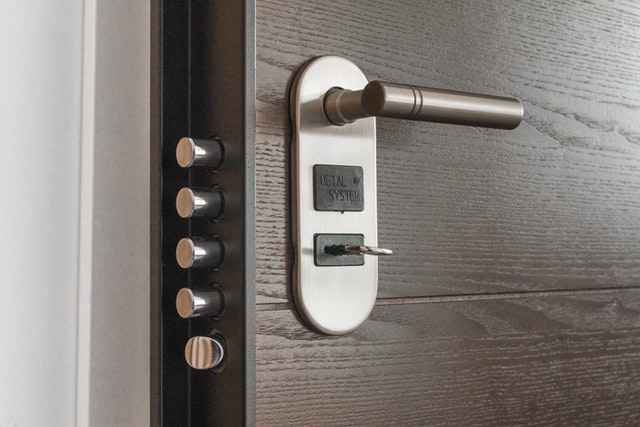Based on a joint study by CrimePreventionTips.com and the Jacksonville State University, house break-ins happen every 15 seconds in the United States. In a day, that’s an alarming 4,800 burglaries that occur nationwide. Countless more reports sing a similar tune. Fortunately, you don’t have to spend thousands of dollars hiring private security or installing top-of-the-line surveillance systems.
Here are seven tips to help you boost your home’s security and, more importantly, your family’s safety.
Install the Right Locks
Mortice locks work better on wooden doors, which are oftentimes fitted with a “Yale” style lock as a default. This latter style of lock is normally held in place with only two or three screws, which does little to deter a forced break-in.
A mortise lock, on the other hand, comes with a bolt that shoots forward into an aperture in the door jamb when the door is locked. To be unlocked, these locks require a key. You cannot break a glass panel on the door and operate the handle or knob, the way you would if it had a traditional door lock system.
Check All Your Home Alarms
Burglars aren’t the only thing that threatens your home’s safety and security. Harmful gasses, including carbon monoxide, can accumulate undetected. Make sure your home’s alarm systems, such as your carbon monoxide detector, are up-to-date and fully operational.
A professional carbon monoxide testing company can perform various tests to determine if your home has any gas buildup and provide solutions to remedy the problem.
Keep the Property Lit
In many cases, even a well-lit driveway or backyard can deter burglars from breaking into your home. Put lamps indoors that automatically switch on or off based on motion or a schedule. You can also install passive infrared, or PIR, triggered floodlighting around your home’s exterior. These floodlights automatically switch on when they detect body heat.
Hide Your Valuables
You might be inviting unwanted attention from thieves by placing money, keys, and other valuables in plain sight. Avoid placing expensive items right behind your window, especially when you leave the property. Keys should also be left where they can’t be seen nor fished out through an aperture.
You can limit how much of your indoor space can be seen from the outside by installing window blinds. Unfurl them anytime you plan on leaving for work or extended vacation.
Limit Your Updates
If you’re traveling for some time, avoid updating people you don’t know very well on social media. While it’s perfectly innocent to post photos and details of your trip, you don’t want to advertise to everyone that your home is currently unoccupied and unsupervised. If you must update your social media pages, limit the updates to close family and friends.
Reinforce Your Window With Stops
Window stops are advertised as a deterrent to keep children from falling through an open window. Additionally, however, they also make for good burglar deterrents. These add-ons disable you from opening the window more than six inches, which is enough space to improve ventilation but not enough room for a burglar to squeeze through.
Install a Good Security System
Today’s market for surveillance cameras is increasingly competitive. Newer and better cameras that come with more features, such as higher-resolution displays, are rolled out every couple of months.
Modern residential security systems come in a compact form, a powerful HD resolution, and two-way audio. Moreover, most surveillance systems come with a mobile app where you can monitor household activity.
Closing Thoughts
These are only a few of the many simple ways to boost your home’s safety and security. While burglars are the main concern when tackling how to keep your home safe and secure, note that they are not the only threat that exists. Natural calamities, including fires and earthquakes, are also real events that can lead to property damage and personal injury. To limit damage, choose solid materials when you’re building or renovating your home.
You should also limit property access to only people you trust. If you are hiring a house sitter or a temporary caretaker for your pet, make sure you interview them thoroughly. Ultimately, your home’s safety and security revolve around being vigilant and prepared for any eventuality.















